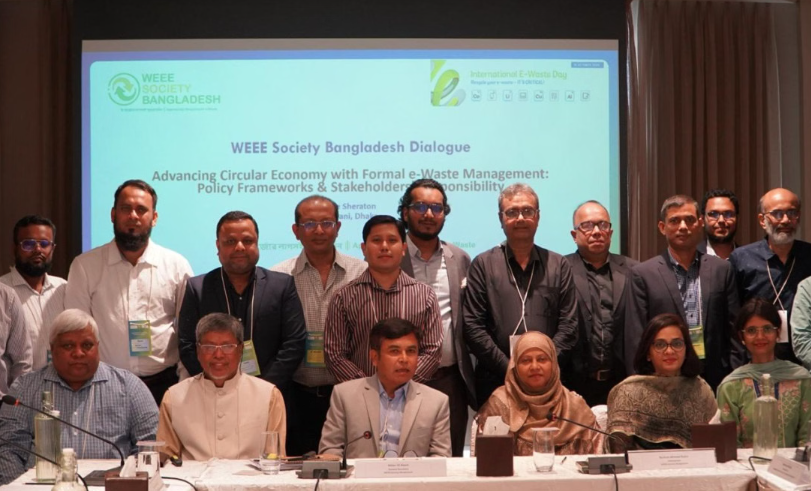Bangladesh is losing out on a potential $500 million economic opportunity every year due to the absence of a formal electronic waste (e-waste) management system, experts said at a discussion in Dhaka yesterday.
“In Bangladesh, we generate 2.2 kilogrammes of e-waste per person, with a financial value of over $500 million if fully recycled formally,” said Akter Ul Alam, general secretary of the WEEE Society Bangladesh, citing the Global E-waste Monitor 2024.
“Yet, we are not only failing to capture this economic value but also creating a public health hazard through unsafe, informal processing that pollutes our ecosystem,” he added.
Bangladesh generates around 367 million kilogrammes of e-waste annually, but Alam said the recycling process is hampered by the lack of structured collection systems and poor coordination between formal and informal sectors.
He pointed out that recyclers face excessive bureaucracy—requiring approval from 21 authorities each year—and are still not recognised as an industry, which discourages investment.
The WEEE Society, a network of environmental professionals, called for a circular approach to e-waste management, emphasising maintenance, reuse, and refurbishment before certified recycling.
Its recommendations include introducing Extended Producer Responsibility (EPR) to make manufacturers financially accountable for waste, offering incentives and tax waivers on spare parts to support repair industries, and strengthening public-private partnerships.
Experts warned that without a formal system, most e-waste—laden with toxic materials such as lead and mercury—continues to be handled informally, endangering workers and contaminating soil and water.
“Collection is the first challenge, but we lack an effective mechanism,” said Sumon Ahmed Sabir, president of the WEEE Society. “Valuable components are being exported cheaply, allowing foreign companies to profit while Bangladesh gains little. Public awareness is also extremely low.”
Sohel Ahmed, executive director of Vista Electronics Ltd, added that there is “no clear framework” for e-waste disposal. “When waste is removed, we don’t even know where it goes,” he said.
Prof Khondaker Mohammod Shariful Huda of Jahangirnagar University identified batteries and IPS units as major e-waste sources contaminating water bodies, while Mahmud Hossain, commissioner at the Bangladesh Telecommunication Regulatory Commission (BTRC), said discarded handsets account for most telecom-related e-waste.
Ahsan Sharif, director of public projects at Fiber@Home, suggested providing incentives for those involved in collection and recycling to encourage formal participation.




